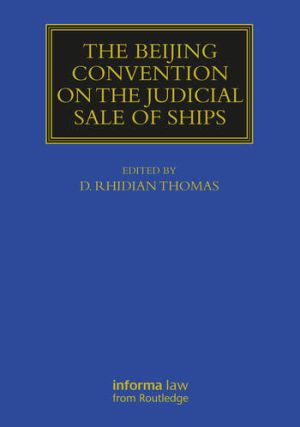
Focusing solely on the UN Convention on the International Effects of Judicial Sales of Ships 2023 (the ‘Beijing Convention’), readers of this unique book will gain a full and detailed understanding of the way the Convention functions, its areas of difficulty and ambiguity, and how it relates to present law in common law and civilian jurisdictions, as well as to other related international conventions. It will directly enable States to be better informed in deciding whether or not to adopt the Convention.
Providing a full and detailed account of why the Beijing Convention was considered desirable, and the development of the Convention within the CMI and UNCITRAL, this edited book conveys to readers the philosophy and core principles of the Convention. It presents a detailed, expert analysis of the precise provisions of the Convention and an understanding of how the Convention relates to existing maritime jurisdictional traditions, namely Admiralty in the common law, ship arrest in civilian jurisdictions, and Admiralty in the USA. It identifies potential problem areas and offers a critical analysis of the role of the Convention in the face of growing digitalization and specialist platforms for the sale and purchase of ships. Readers will benefit from a reflective evaluation of the merits and deficiencies of the Convention.
As the Beijing Convention is currently a highly relevant topic to the international legal maritime world in all its aspects, governments, lawyers, academic institutions, students and the shipping industry generally will be directly interested in the content of this book. The subject is likely to retain its global relevance for many years as individual States consider whether they should ratify the Convention.